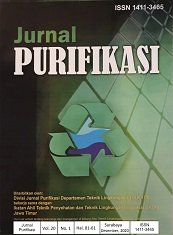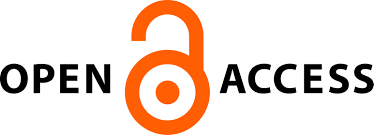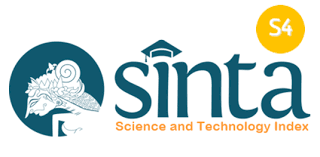KEBIJAKAN PENGELOLAAN SAMPAH PLASTIK DI INDONESIA: STUDI KASUS KOTA SURABAYA
Main Article Content
Abstract
Plastic waste management has been in the spotlight in recent years because the amount of plastic waste generation increases every year. Likewise, with the potential for plastic waste that is mismanaged or leaked into the environment, such as being leaked into water bodies and ending up in the ocean. The plastic waste policy implemented by the Indonesian government has started to be adopted in several cities in Indonesia, including in Surabaya. However, there are still gaps in policies at the national and regional levels, such as the issuance of regulations regarding the ban on single-use plastic. The current single-use plastic waste management policy in Surabaya is still in the form of a mayor's circular. This study examines the existing condition of plastic waste management in Surabaya and relates it to the national plastic waste management policies. By tracing the flow of plastic waste from its source to ending at the final processing site, we can find out the gaps in which plastic waste is leaked into the environment. The amount of waste that enters the Benowo landfill in 2019 reached 1689 ton/day. Surabaya’s plastic waste leakage is estimated to reach around 94.64 ton/day or 44% of the total solid waste that is mismanaged every day. Solid waste leaked into the environment can be dumped illegally, burned, or even leaked into water bodies. This study discusses what things can be improved from plastic waste management in Indonesia, especially Surabaya. The combination of bottom-up and top-down approaches is considered as one way to accelerate the improvement of plastic waste management in Surabaya. The lessons learned from the city of Surabaya can also be applied in other cities in Indonesia that have a similar profile to Surabaya.
Downloads
Article Details
Submission of a manuscript to Jurnal Purifikasi means that the work has never been published in another journal and is not under consideration for publication elsewhere. The author hereby agrees to submit the copyright of the manuscript and its contents to Jurnal Purifikasi, if accepted for publication. Accepted manuscripts will be published in printed form where the ISSN is bound in printed form, not in online form (pdf). Authors are not allowed to publish their work in other forms (journals) without permission from the Jurnal Purifikasi manager.
By submitting a manuscript, the author is deemed to know all the rights and obligations attached to each manuscript.








